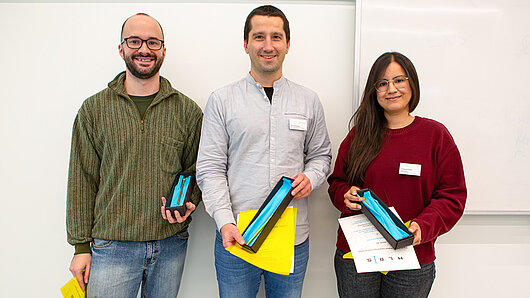High-Performance Computing Center Stuttgart

Twenty-one talks and a poster session covered topics from a broad range of scientific disciplines, including computational fluid dynamics, particle physics, weather modeling, materials science, geoscience, biophysics, astrophysics, computer science, and architecture, among others. Many of the presentations also reported on progress in adapting research codes to HLRS’s new GPU-accelerated flagship supercomputer, Hunter. In many cases, researchers have successfully ported their codes to the new system and are in the process of optimizing them for efficiency. The event offered a chance to exchange insights on lessons learned and challenges faced in making this transition.
At the conclusion of the meeting, Prof. Thomas Ludwig, Director of the German Climate Computing Center and Chair of the HLRS Steering Committee, announced the winners of the 2025 HLRS Golden Spike Awards. Presented every year at the Results and Review Workshop, the awards recognize excellence in computational research and the use of high-performance computing. Representing their respective projects, this year’s Golden Spike Award winners were:
Spencer Starr, Institute of Aerodynamics and Gas Dynamics, University of Stuttgart
Combining the discontinuous Galerkin solver FLEXI with deep reinforcement learning (Project: hpcdg at HLRS)
Dr. Karen Palacio-Rodriguez, Max Planck Institute for Biophysics, Max Planck Society, Frankfurt am Main
Atomistic molecular dynamics simulations of the human nuclear pore complex (Project: GCS-MDhNPC at HLRS)
Dr. Andreas Stegmeir, Max Planck Institute for Plasma Physics, Max Planck Society, Garching
Plasma turbulence simulations in the periphery of magnetic confinement fusion reactors (Project: GRILLIX at HLRS)
Conference program, including links to posters presented at the conference
More information about the Golden Spike Awards